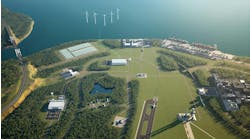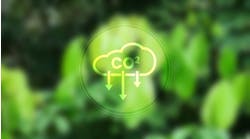The old wag says that time is Nature's way of ensuring that everything doesn't happen at once. Good thing too, because even during a short work week, stuff keeps happening, whether we're at a picnic, the ball game, or down at the plant.
Here are 10 items, in no particular order, you might have missed while doing other things.
AspenTech is garnering attention for its foray into simulation and model-based control. Keith Larson reports.
Our bloggers have been keeping up with segments of the process automation universe as well.
Greg McMillan reports on Causes and Fixes for Fast Oscillation.
Our cybersecurity guy, Joe Weiss delivers the not-so-reassuring news that even ex-CIA guys don’t really “get” the problem of critical infrastructure cybersecurity.
And Dan Miklovic, looking forward to Manufacturing 2020, reports on the difference between process control and process management and why it's important to make the distinction.
Our resident polymath and editor in chief, Walt Boyes, brings us word of the arrival IRL (in real life) of the long-promised "lick 'n stick" sensor—these iterations being good for everything from keeping track of the moisture content of your garden soil to the temperature and humidity in your wine cellar and/or humidor, your refrigerator, your bedroom or anywhere else you need simple temperature and humidity sensing.
He also remembers the troops in this reflection on the limits of automation, process and otherwise.
In other news, the speculation has begun about who is going to replace Joe Hogan as CEO of ABB.
The search for causes of the West Texas fertilizer plant explosion gets more convoluted all the time. Now it seems the investigation is being stymied by an inter-agency cat fight.
Part of the problem in West, Texas, was that nobody seemed to be aware of just how much explosive material was stored at the plant. The disturbing thing is that ammonium nitrate is stored in many places all over the country and finding out just where and in what quantities is a lot more complicated than just asking. It comes down to the confusing and not-always-delicate post-9/11 balance between the right/need to know and security. One Hawaiian official outlines the Kafka-esque reality: "Under Hawaii's interpretation of the law, people who want information about specific chemical facilities near their homes are qualified to see it. But that presupposes they already know enough to ask. Clarence Martin of the state's Hazard Evaluation and Emergency Response Office said people deserve to know what's in their neighborhood. But, he added, 'I'm not going to let you tell them.'"
If it seems to you that Mother Nature's been on a tear the last few years, you’re right—and her hissy fits are costing us big time. Our sister publication Sustainable Plant shared this about what the last couple years' worth of crappy weather have cost. Last summer's drought alone cost $20 billion. We're not telling how much of that number was our water bill.
Finally, on a lighter note, today's Google doodle celebrates the 161st birthday of Julius Richard Petri of dish fame.



